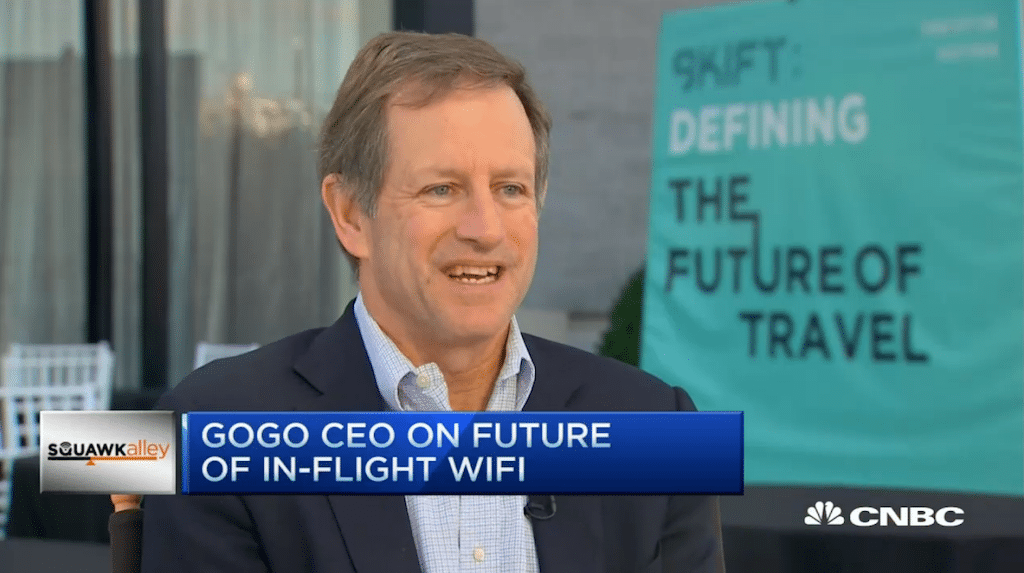Gogo CEO Doesn't Care Whether the Future of Wi-Fi Is Free or Not

Skift Take
In-flight Wi-Fi, with satellite service coming, is going go to get a helluva lot better. But like the initial rollout of air-to-ground-based Wi-Fi, it is going to take years.
Gogo CEO Michael Small believes the future of in-flight Wi-Fi will be a "smart platform" that connects passengers to "everything," and from a business standpoint Gogo doesn't care whether airlines offer free or fee-based Wi-Fi to their passengers.
"Bags fly free or they don't," said Small, seemingly comparing Southwest Airlines' policy of two free checked bags per passenger with airlines that use a sponsorship model and provide their customers with free, in-flight Wi-Fi. Small addressed the future of Wi-Fi October 15 at the Skift Global Forum in Brooklyn during interviews as part of the program and right after at the conference venue with CNBC [see vi

